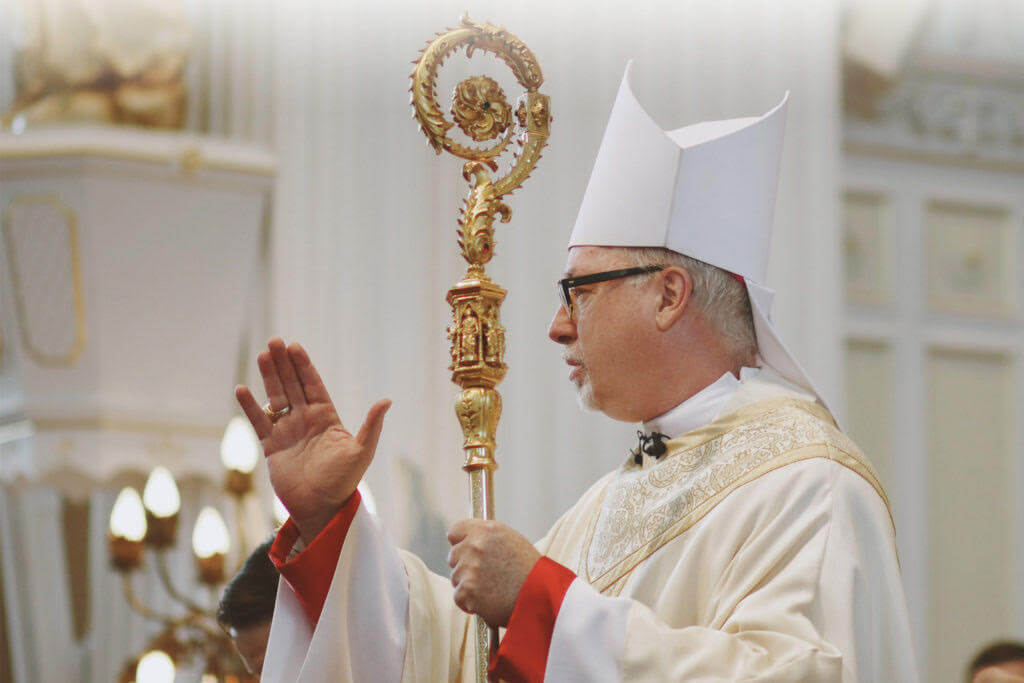
Promise to protect, pledge to heal
In response to the sexual abuse crisis by clergy and other Church personnel, the Diocese of Burlington has joined other Dioceses to condemn these past unacceptable behaviors and to take effective action to prevent such abuses from occurring in the future.
To guide this nationwide effort, the United States Conference of Catholic Bishops established the Charter for the Protection of Children and Young People in 2002. The charter is comprehensive document comprised of 17 articles that outlines the bishops’ commitment to do the following:
- Mandatory reporting of all abuse allegations by individuals who experienced sexual abuse by some cleric or other Church personnel to civil authorities;
- Cooperation with civil authorities;
- Removal of credibly accused clerics from active ministry;
- Background checks of all priests, staff and volunteers;
- Training of all clergy and staff to recognize and prevent abuse;
- Training for children to recognize, prevent and report abuse;
- Healing and reconciliation;
- Accountability in procedures.
William G. McSalis is manager of Safe Environment Programs for the Diocese. His office works to keep youth and vulnerable adults safe by implementing diocesan policies that include providing youth protection training and background checks for those employees and volunteers who work with or serve minors or vulnerable adults. Personnel work closely with diocesan schools, the Office of Youth and Youth Ministry, the Office of Evangelization and Catechesis, Human Resources and Vermont Catholic Charities Inc. to implement policy and help to ensure compliance and work to ensure that youth protection training is provided to youth. “Much of our day-to-day work involves assisting people with issues they may have accessing the training or determining if they are in compliance with diocesan policies,” he said.
Before taking this position with the Diocese in June, he was a special agent with the FBI for more than 25 years and has dealt with many victims as well as those accused of committing crimes. “It’s important to listen and understand the subtleties that differentiate each victim,” he said. “I have always been honest with both the victims and the accused. Tricking or lying to someone only serves to breed distrust. Honesty, even if it’s not what the person sitting across from you wants to hear, helps to resolve problems.”
McSalis served on FBI SWAT teams for most of his career and was an instructor for various tactical disciplines. He instructed police officers and other first responders and civilians in Active Shooter/Aggressive Deadly Behavior response.
“I’ve learned quickly that when dealing with victims, some of whom have never before revealed their sufferings from sexual abuse, … to let them know that I believe they are victims and that I am sorry about what happened to them,” he said.
The Diocese is mandated to keep youth safe and to address allegations from victims of sexual abuse and misconduct as well as those who suspect that activity. “We make reports of abuse to the appropriate authorities and assist with connecting victims with counseling to promote healing and reconciliation,” McSalis said.
His office does not conduct investigations of sexual abuse.
The Diocese uses an on-line program called Safe & Sacred to provide training to employees and volunteers who work with or serve minors.
The training helps them become aware of the both the signs and effects of child abuse, sexual or otherwise, and the appropriate response, such as reporting suspected abuse to the Vermont Department for Children and Families and law enforcement authorities.
For more information, call 802-658-6110 ext. 1219.
—Originally published in the Winter 2018 issue of Vermont Catholic magazine.

